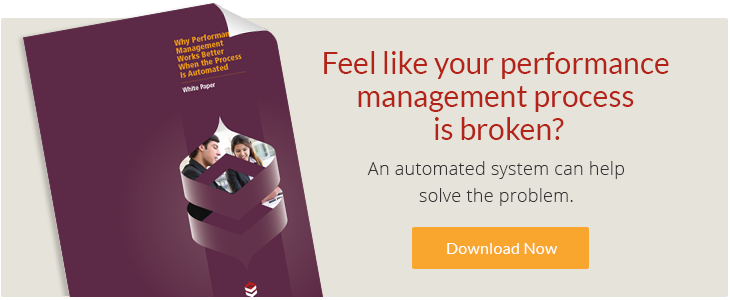Don’t Confuse Feedback with Attention in Performance Management

A lot of employees prefer feedback to real-time performance reviews. Primarily because their organizations don’t have performance reviews often enough to be considered effective. So with real-time feedback employees are able to get the information they need about their work and then fix it as they move forward. However, sometimes this feedback translates into attention for supervisors as the crux of the feedback gets lost in trying to give it. Are you concerned your managers are confusing feedback with attention in your current performance management system? They aren’t the same thing and they produce different results. Let’s get your team on the right track. Start by downloading a performance review template and then follow these steps…
What’s the difference?
There are hundreds of articles and just as many thought leaders that explain how Millennials want feedback on their work instead of the regular performance review (annual or otherwise). We’ve even written about it a few times, but as Marcus Buckingham explains, that’s not how performance management needs to change. The change in performance management has to be more than giving the real time information that you would in the annual performance review… Do they want feedback? No. People want attention.
“Millennials want somebody to help them get better and if you look at all of the social media tools that we have, none of that is feedback. The, likes on Instagram isn’t feedback, it’s attention and it’s really interesting. If you build a cult of feedback, people aren’t going to like it at all.”
Specifically, your employees want coaching attention. They don’t want feedback on how they did, we want coaching to see how they can do.
Tweet This: Instagram isn’t feedback. Pay attention to these performance management practices:
The Results
When your team knows how they can do and where you see them in the near future, they’re able to align their personal goals with the organization’s plan. So if the ultimate objective is to position employee goals in accordance with company plans, doesn’t it make sense to focus more on the future potential rather than past mistakes? Now, we all have made mistakes, and there is a purpose in learning from them, but there’s no need to focus on them with every piece of feedback. Buckingham continued:
“Human beings don’t like feedback. Human beings love attention, particularly individualized attention about me and how I can be better. That’s cool. That’s coaching.”
So with coaching targeted towards employee potential, your organization becomes a culture of engagement and retention which eventually increases business performance. Structure your performance reviews to a forward-facing on career and position goals rather than focusing on past performance.
In Performance Management
How can you integrate coaching, attention, whatever you want to call it, into your performance management structure? A joint American Management Association and Institute for Corporate Productivity study reported that coaching is used by 52% of US companies with another 37% considering implementing a coaching program.
Tweet This: 37% of US companies are considering coaching programs. Are you?
Renée Robertson (@ReneeTrilogy), CEO at Trilogy Development, suggests a few steps when you begin using coaching as a performance management tactic:
● Educate leaders – Coaching and counseling are different. Make sure each executive understands the differences between the two.
● Identify coaches, participants and executive sponsors – Look for individuals and managers who can be trained to become internal coaches.
● Manage expectations – Set clear expectations with coaches, individuals being coached, executive sponsors and managers and colleagues.
● Train – Enroll internal coaches in a training program ensuring they are coached by someone with experience in educating internal coaches.
● Measure success – Beforehand, determine how you will measure success.
Supposedly employees want real-time feedback, but really, your employees function better with the attention through coaching. You can integrate coaching into your performance management strategy so it becomes a tactic for engagement and overall performance improvement. Through a few steps, you can easily combine coaching methods with your performance reviews to make your discussions forward-facing instead of concentrated on past performance. It’s time to take a step in the right direction with team development, and coaching style performance reviews are the way to do this.

Related Topics:
